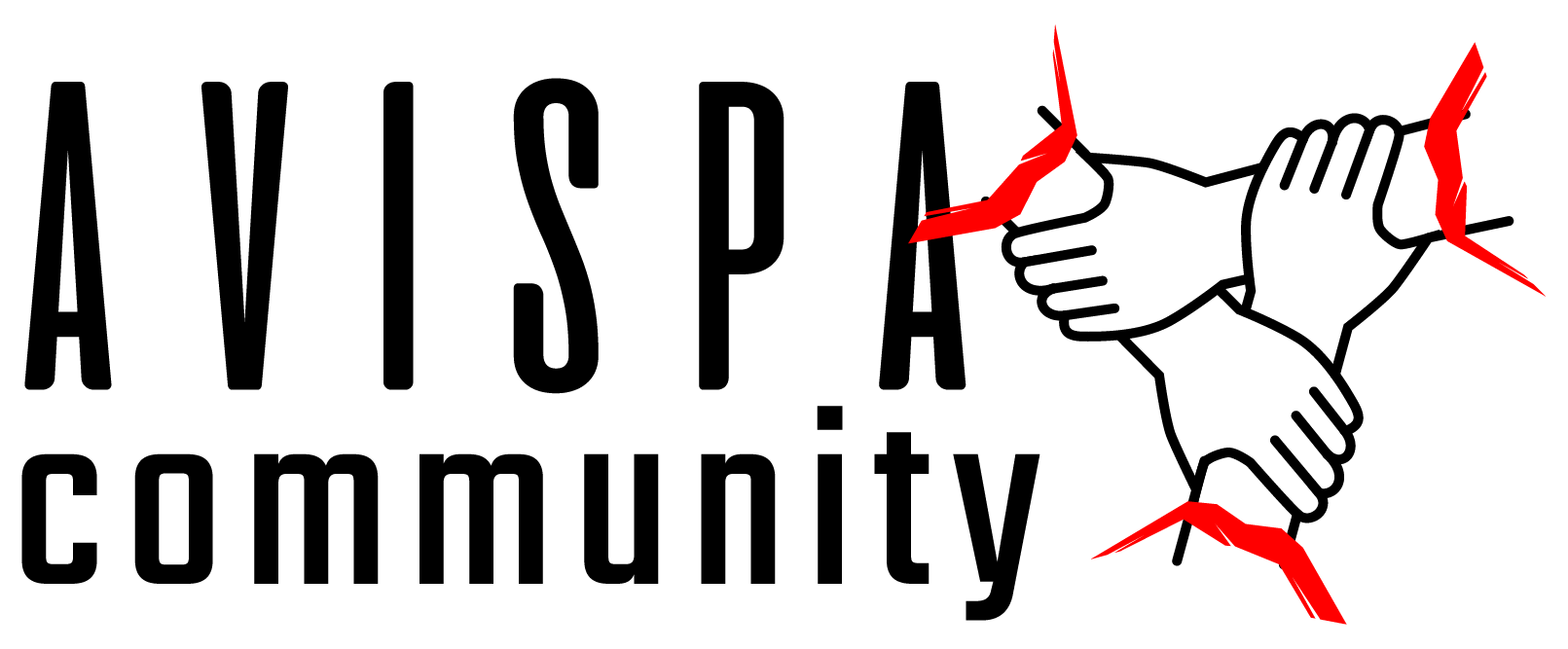Cover image: Participants in the Second National Assembly for Water and Life pose on a water truck to emphasize the water crisis in different parts of Mexico. Photo: Santiago Navarro F
A soft breeze, followed by a strong wind, stir up the earth, causing dust to dance between the bodies of those arriving from different geographies of Mexico, and even some from other parts of the world. Their gazes cross with a certain complicity, not surprisingly, the present times are a tragedy. There isn’t one movement that hasn’t suffered state repression: disappearances, political imprisonment, dispossession, harassment, and the worst, assassination. But on this occasion, people gathered around a common element which represents life, which connects everyone’s destiny: water.
Participants from at least eighteen states of Mexico, and people from six other countries—more than 500 people—arrived to rebel Otomí territory, in the community of Santiago Mexquititlán, pertaining to the municipality of Amealco, Querétaro. The majority of whom were there for their first time, enthusiastically attending the Second National Assembly for Water and Life.
For two days, participants shared their thoughts, strategies, and the challenges they have faced, in expanding coordinated actions “against the exploitation of water and the water crisis being caused by national and multinational companies,” they explained.
Otomí women, wearing their traditional clothing with contrasting colors, making their appearance and the certainty of their words more powerful, understand it well. They chose their community to host the event, and this was not a random decision. “In the state of Querétaro, they’ve begun implementing laws to privatize water. But this vital liquid is located principally in our territories, in the territories of Indigenous peoples,” said the Indigenous Otomí woman, Sara Hernández.
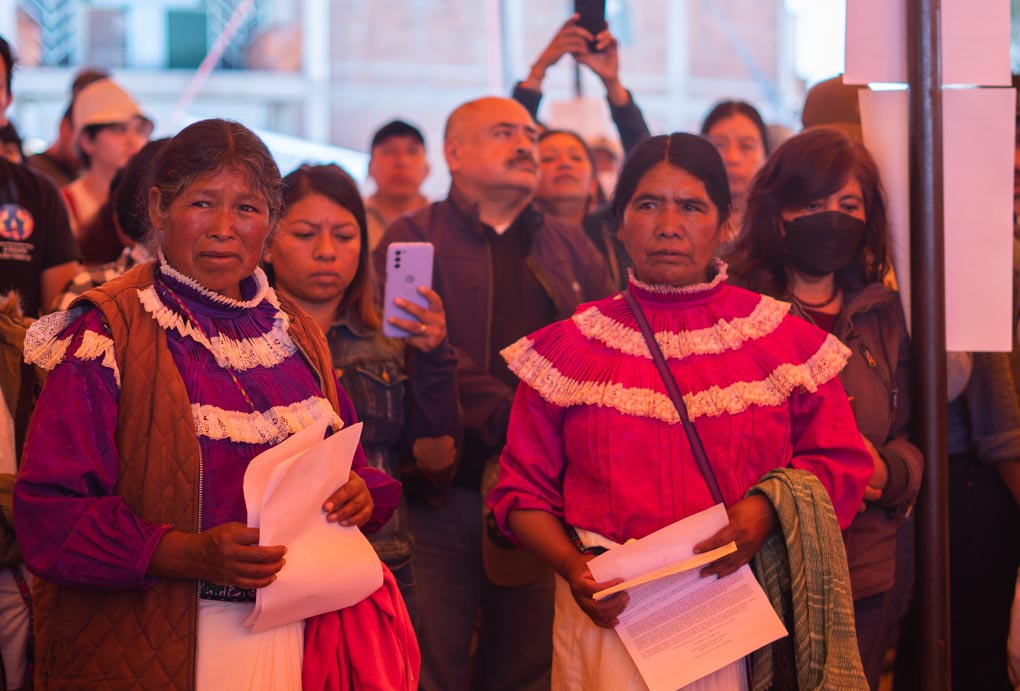
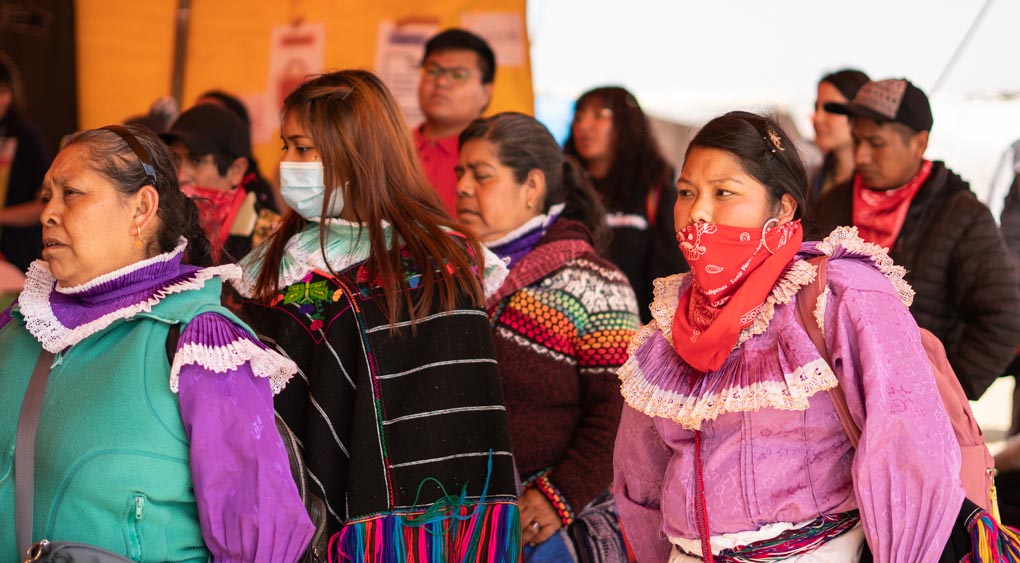
Sara refers to a law that was proposed in 2021, going into effect in July of 2022. The law primarily benefits private capital. As a consequence of the law, “a large number of water concessions were issued to the private water sector,” she adds.
Among other benefits to private companies, the new law allows those with water concessions to “temporarily provide, totally or partially…the public services of drinking water, potabilization, drainage, sewage treatment, and the disposal of wastewater.”
In addition to allowing the private sector to profit from the blue gold, the law opens the door for private companies to participate in making policies, guidelines, and technical specifications for the construction, expansion, rehabilitation, administration, operation, conservation, and maintenance of drinking water supply systems and other services. This law will even reward the private sector with recognition for encouraging what they are calling, “citizen participation in water culture.”
The Indigenous Otomí woman, Sara, recalls that one of the principle activities that caused alarm in the community was in 2021, when the new law was being prepared in the parliament of Querétaro. “That year we began to see that they were exploiting the water in the community with pipes and water trucks,” she says.
The most outrageous thing, Sara relates, is that the community was paying the State Water Commission (CEA) for the water service, but the water was not meeting their daily needs. The situation was so dire that the only well that fed the entire community was beginning to reach its limit and dry up. “That’s when the community got organized and took over one of the water trucks and decided to take control of the well,” says Sara.
The Legal Battle for Water
Next to the Otomi community’s drinking water well, there sits the remains of an official vehicle of the State Water Commission (CEA), a water truck with a phrase written in graffiti on its 30,000-liter capacity tank: “It’s not a drought, its exploitation,” alluding to the water crisis in several Mexican states.
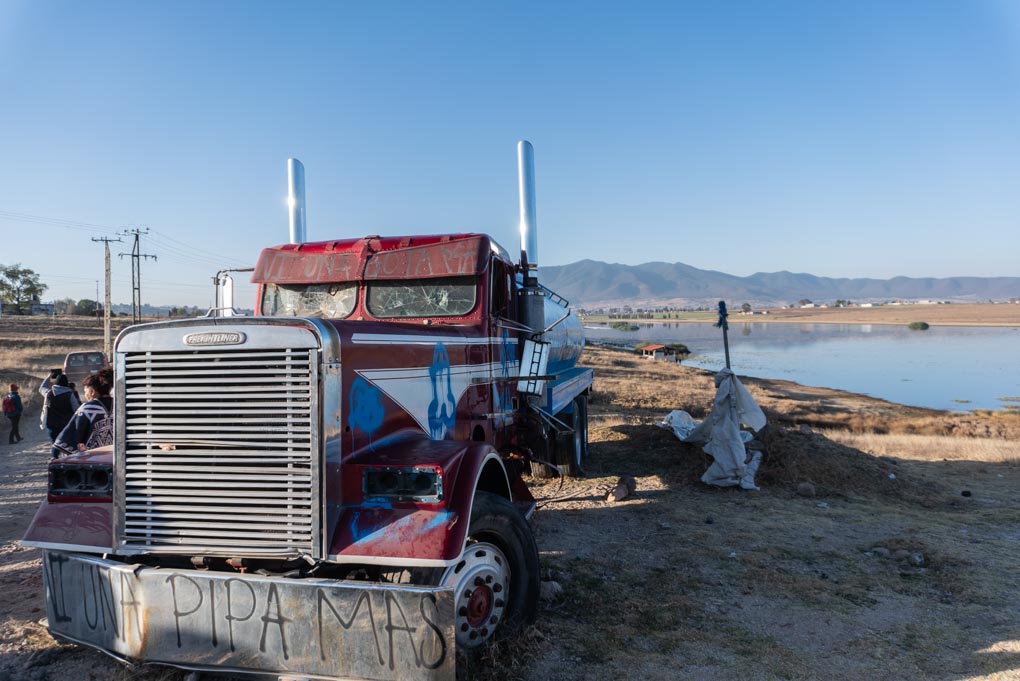
The well providing water to the Otomi community is part of the Valley of Amealco, one of seven aquifers that sustain the monstrous industrial complexes and urban zones established in this area. At the same time, these water reserves form part of 653 aquifers that provide the groundwater of Mexico, according to studies from the Ministry of Environment and Natural Resources (SEMARNAT).
“Water continues to be managed in the same way as it has been by previous governments, as it has been since the reform to Article 27 (of the Mexican constitution). Since the enactment of the national water law, through the simulation of a concession system, the privatization and exploitation of water has been approved,” explains the lawyer, Carlos González, of the National indigenous Congress (CNI), who provides legal support to the Otomí community.
The lawyer calls the concession system a “simulation” because “through the figure of the concession, water is disproportionately handed over to large companies, concentrating it into very few hands in this country: in the mining sector, for soda and beer companies, for the industrial and real estate sector, for industrial agriculture and cattle raising,” summarized the advisor to the National Indigenous Congress.
Carlos González points out that this strategy of privatization is taking place in the Otomí region, principally with the concession of a well located in Barrio 4 of the community. That well is formally administered by the State Water Commission (CEA). “With this law, there exists the possibility, the high probability, that this well will be handed over to management by a private company,” remarks the CNI lawyer.
For this, “We’ve begun a legal battle, filing several appeals in Querétaro. We’ve also begun to mobilize,” Sara explains.
According to the lawyer, the community has taken up a legal battle as one of the strategies of resistance. Three appeals have been filed against the law, against the refusal to hand over management of the well to the community, something that has been requested by the community on various occasions. Furthermore, an appeal has been been filed to prevent a private company from acquiring a concession and taking over management of the well.
“Two appeals were ruled on in favor of the community. The unconstitutional acts that were extremely harmful to our people were suspended,” explains the legal advisor.
The Struggle Must Be Nationwide
As if they were mirrors, the social and legal problems arising from the water crisis in different Indigenous communities in Mexico, all reflect the same scene of exploitation. This second assembly, which took place on February 18 and 19 in this Otomí community, followed a previous assembly in a different community that stood up to the blatant exploitation of the multinational corporation Danone.
The history begins in Santa María Zacatepec, in Juan C. Bonilla, Puebla. There, the French company, Danone, via its affiliate, Bonafont, installed themselves in the community in 1992. The company was “extracting 1,642,000 liters of water daily. In addition, they exploited the workers with miserable wages. This company left us without water. In 2021, the 20 communities who have since organized, didn’t have water in our wells,” says an activist from the community, who for security reasons only introduced herself as Adela.
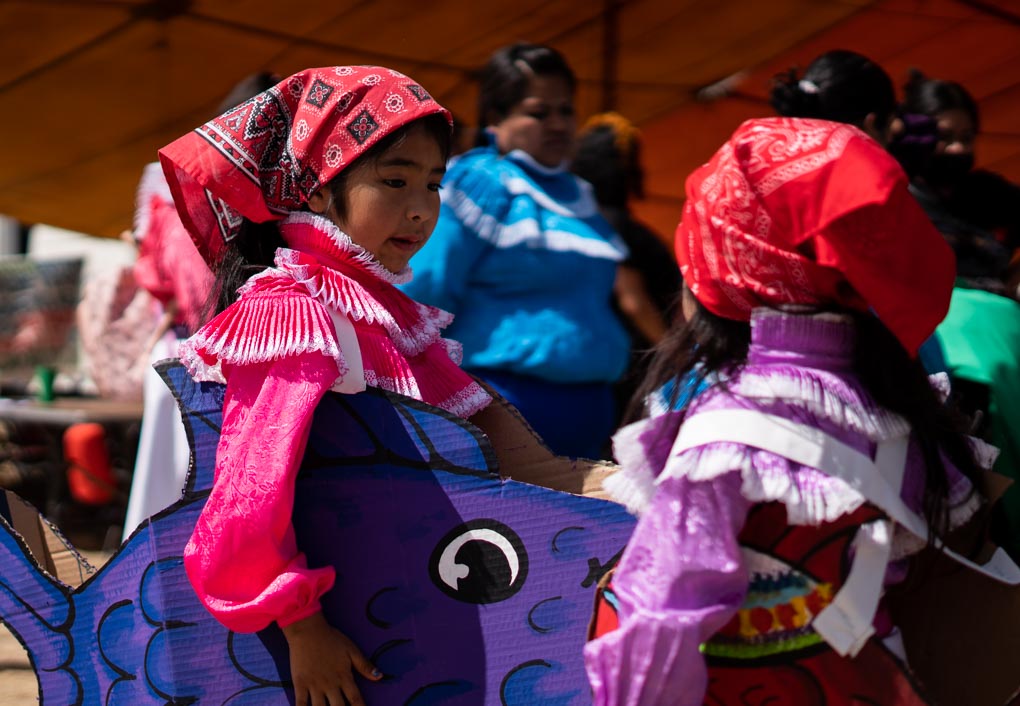
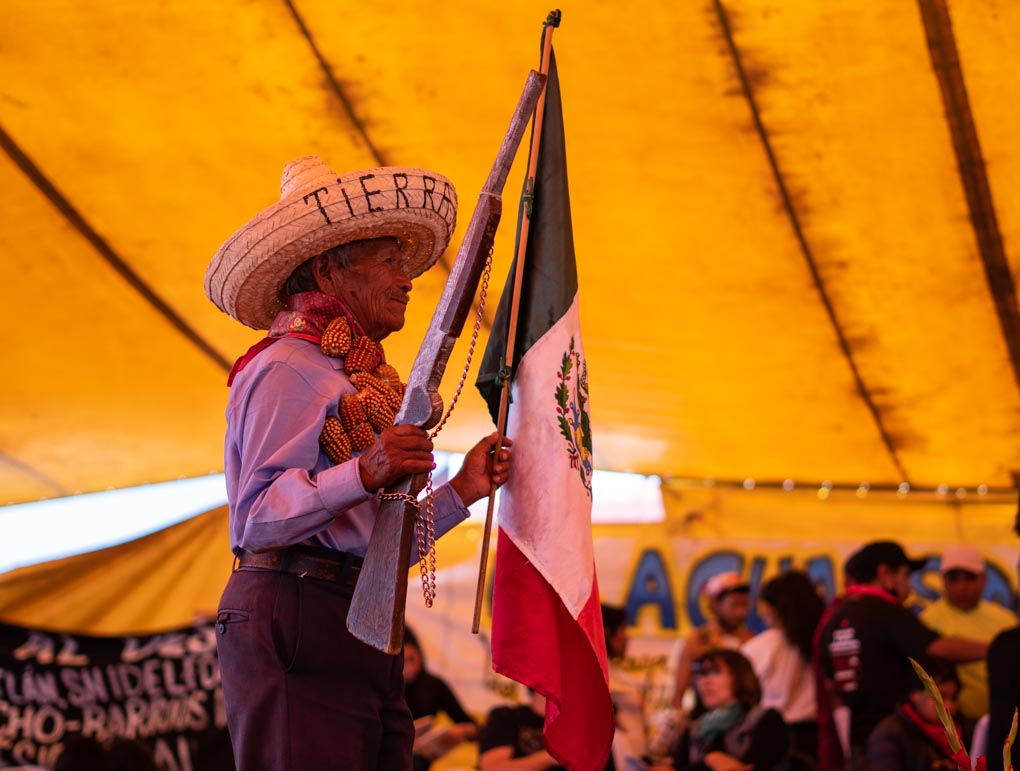
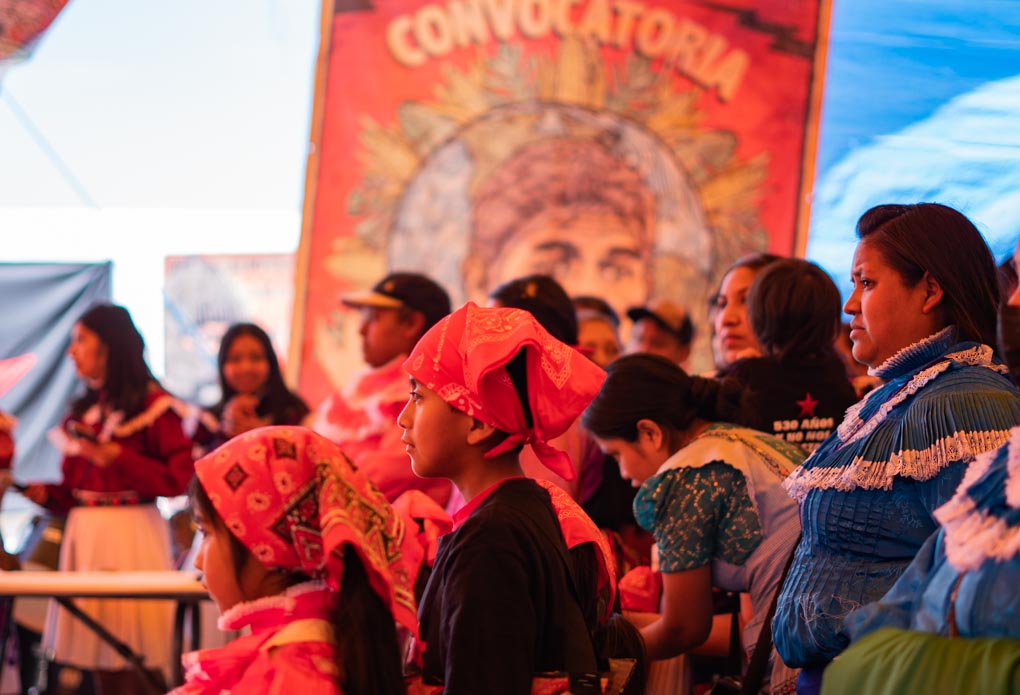
This company offers a liter of water to the Mexican market for nearly the same cost as a liter of gasoline. “So, if oil theft is a serious crime, why does the government allow water theft and not classify it as a crime?” asked the Indigenous man, Alejandro Torres, a member of the organization, Pueblos Unidos de la Region Choluteca y de los Volcanes.
Via direction action, these communities took over and stopped the activities of the Bonafont plant. “From that moment, our wells began to have water again. We’ve calculated that, to this day, more than 1.2 billion liters of water have flowed again. That number will continue to rise because we will not allow the company to return to our territory to exploit our water,” added Adela.
After this experience, different communities from different regions of Mexico decided to organize a second assembly to strengthen the defense of water and the defense of Indigenous territories. Among the agreements reached were that the communities would adhere to their self-determination as Indigenous peoples, not asking for permission from the government to manage their water. “Because we have the capability, and the forms of organizing ourselves. We know how to manage and take care of our water, as we have done since time immemorial,” says the Indigenous man, Miguel López Vega, of the Frente de Pueblos en Defensa de la Tierra, y el Agua, Morelos, Puebla, Tlaxcala.
Participants in the second assembly warn that if no action is taken, the coming crisis will be much worse and will not only affect Indigenous peoples, but urban zones as well. “The struggle must be nationwide,” Adela adds.
Those who participated in the assembly have named this new epoch of dispossession, “A war of extermination,” and the examples are clear.
Among them are: “A) The plundering, extraction, trafficking, sell, and exploitation of water; B) The extermination of our forests, rivers, oceans, minerals, flora, fauna, cultural and linguistic richness and diversity; C) The imposition of megaprojects like the Mayan Train, the Interoceanic Corridor, and the Morelos Integral Project; and D) By all means they seek to end with our autonomy, the autonomy of Indigenous peoples,” they denounce in the agreements from the assembly.
In order to continue the organizing work, an agreement was reached to carry out a third assembly, to be held on August 12 and 13 in the Indigenous community of Xochimilco, if approved by the community.
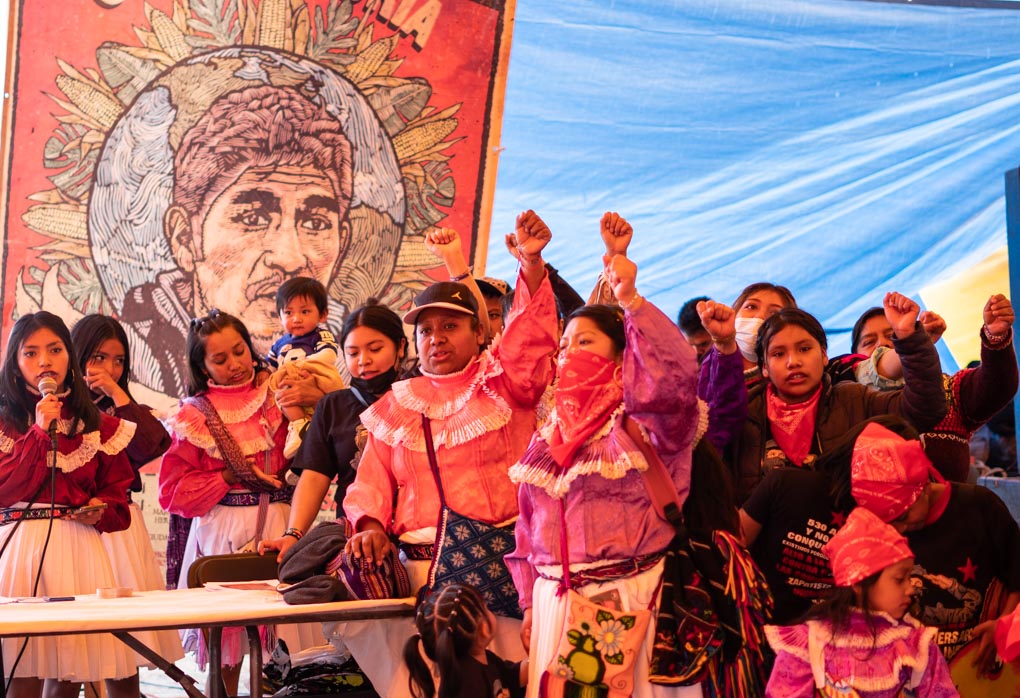
Different activities have been announced for March 8, 9, and 22, including mobilizations. Above all, they are calling for “global action against the exploitation of water and for the right to life,” to commemorate the United Nations recognition of the importance of access to drinking water as a basic human necessity.
From the assembly, they also seek to denounce the exploitation, privatization, and plunder of water, especially by “the exploitative companies like Nestle, Bonafont, Danone, Coca Cola, and tourist real estate companies.”
In a press conference on Monday February 20, at the close of the assembly, they remembered the Indigenous activist Samir Flores Soberanes, who opposed the Morelos Integral Project (PIM), and was assassinated four years ago.
“His struggle against the Morelos Integral Project (PIM) and his open opposition to the Huexca Thermoelectric Plant caused the narco-state to order his assassination. We not only condemn the delay of justice and the impunity, but we demand truth and justice for Samir. Today we reaffirm that the seeds that he planted in the struggle are flourishing in the Second National Assembly for Water and Life.”
This assembly was also dedicated to the activists Antonio Díaz Valencia and Ricardo Arturo Lagunes Garza, who have been disappeared since January 15 in Aquila, Michoacán. Throughout the event, emphasis was placed on the demand for their alive return.


